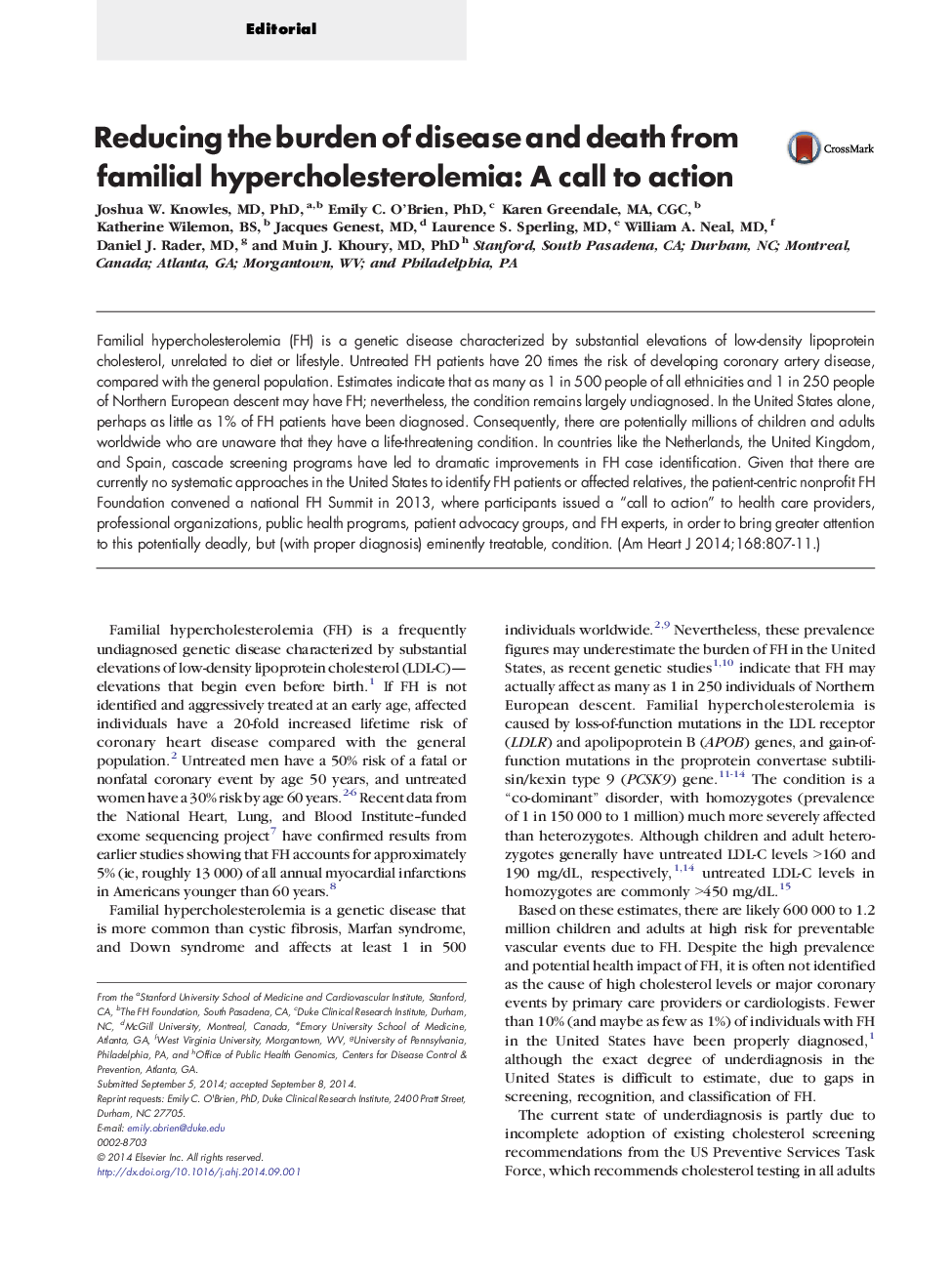| Article ID | Journal | Published Year | Pages | File Type |
|---|---|---|---|---|
| 5928182 | American Heart Journal | 2014 | 5 Pages |
Abstract
Familial hypercholesterolemia (FH) is a genetic disease characterized by substantial elevations of low-density lipoprotein cholesterol, unrelated to diet or lifestyle. Untreated FH patients have 20 times the risk of developing coronary artery disease, compared with the general population. Estimates indicate that as many as 1 in 500 people of all ethnicities and 1 in 250 people of Northern European descent may have FH; nevertheless, the condition remains largely undiagnosed. In the United States alone, perhaps as little as 1% of FH patients have been diagnosed. Consequently, there are potentially millions of children and adults worldwide who are unaware that they have a life-threatening condition. In countries like the Netherlands, the United Kingdom, and Spain, cascade screening programs have led to dramatic improvements in FH case identification. Given that there are currently no systematic approaches in the United States to identify FH patients or affected relatives, the patient-centric nonprofit FH Foundation convened a national FH Summit in 2013, where participants issued a “call to action” to health care providers, professional organizations, public health programs, patient advocacy groups, and FH experts, in order to bring greater attention to this potentially deadly, but (with proper diagnosis) eminently treatable, condition.
Related Topics
Health Sciences
Medicine and Dentistry
Cardiology and Cardiovascular Medicine
Authors
Joshua W. MD, PhD, Emily C. PhD, Karen MA, CGC, Katherine BS, Jacques MD, Laurence S. MD, William A. MD, Daniel J. MD, Muin J. MD, PhD,
